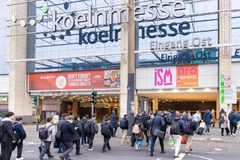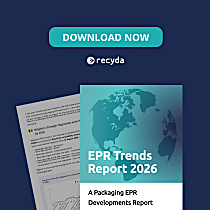Plastipak powers PET recycling plant with BioteCH4’s food waste to energy

05 Jul 2021 --- Rigid plastic packaging producer and recycler Plastipak is partnering with anaerobic digestion operator BioteCH4 to deliver a low carbon solution for powering its Clean Tech PET recycling plant.
Based in Hemswell, Lincolnshire, UK, BioteCH4 operates an anaerobic digestion plant, recycling over 90,000 metric tons of food waste per year.
Anaerobic digestion is a complex biological process involving the breakdown of organic matter in the absence of air in large, sealed and insulated vessels with controlled heating and mixing.
How does it work?
In BioteCH4’s process, food waste enters a sealed building where it is converted into a liquid slurry and pumped into the anaerobic digestion plant.

Here, the bacteria feed on the food waste and produce biogas. The biogas is captured and used as fuel in CHP (combined heat and power) engines to produce electricity or sent through a gas filter directly to the gas grid.
The digestate or biofertilizer produced undergoes pasteurization, destroying pathogens and is used as a high nutrient biofertilizer on farmland, replacing fossil fuel-derived fertilizers. The process ensures a complete carbon loop and energy capture.
Leading PET reprocessor
Clean Tech, wholly owned by Plastipak, is a leading UK PET plastic reprocessor, recycling more than 80,000 metric tons of post-consumer PET bottles and packaging annually, collected through the curbside recycling system.
The food-grade recycled resin produced at Clean Tech is used to manufacture new PET preforms, bottles and containers for well-known FMCG brands at parent company Plastipak’s UK plant in north Wales, UK. Plastipak’s Clean Tech recycles over 80,000 metric tons of post-consumer PET bottles and packaging annually.
Plastipak’s Clean Tech recycles over 80,000 metric tons of post-consumer PET bottles and packaging annually.
This process is known as bottle-to-bottle recycling and keeps the PET plastic in a closed-loop, so it can be recycled repeatedly.
A community feel
Clean Tech and BioteCH4 are neighbors, with just a road separating the two plants. Following the creation of this new partnership, the electricity generated through the CHP process at BioteCH4 is connected directly to Clean Tech, powering its recycling process.
“The use of clean, green energy generated through the recycling of food waste fits perfectly with Clean Tech and Plastipak’s ethos of plastic closed-loop recycling,” explains Chris Brown, Clean Tech’s managing director.
“In their own rights, Clean Tech and BioteCH4 are perfect examples of the circular economy in action, and this is a pragmatic yet unique partnership that combines the core activities of both companies to deliver a leading, low carbon end product of recycled PET resin.”
Recycled PET resin has a lower carbon footprint than virgin resin and is used as a direct replacement in proportions from 25-100 percent in new bottles.
Leading FMCG brands have made long-term commitments for using recycled PET, driven by a combination of CSR policies, legislation, and voluntary commitments such as the UK Plastics Pact.
“As one of the leading anaerobic digestion operators in the UK, we have the knowledge and experience to deal with considerable volumes of food waste generated across a variety of business sectors and local authorities,” adds Sam Tingle, BioteCH4’s marketing and brand manager.
“We are delighted to partner with Clean Tech and look forward to a long and fruitful relationship.”
Edited by Joshua Poole











